|
Genres, Themes, Actors, and Directors:
- Femmes Fatales
- Gene Hackman Films
- Jessica Walter Films
- Kim Hunter Films
- Mental Illness
- Obsessive Love
- Peter Fonda Films
- Robert Rossen Films
- Veterans
- Warren Beatty Films
Review:
Though it’s received mixed reviews from critics over the years, Robert Rossen’s final film is ultimately a dated disappointment. Drawing upon every possible cliched romanticization about mental asylums and their inhabitants, Rossen’s screenplay (based on J.R. Salamanca’s novel) comes across as well-intentioned but painfully pretentious and unrealistic. From the beginning, we wonder how a potentially disturbed young veteran can walk off the street into a high-scale asylum and secure a specialized job as a pseudo-therapist, working closely with its inmates and spending more and more time with one beautiful inmate in particular, while nobody bats an eyelid (only in the movies — that’s how). To that end, Kim Hunter as Vincent’s boss (who SHOULD be more attentive!) is completely wasted in an underdeveloped role, while Jessica Walter (as Vincent’s former girlfriend) and Gene Hackmann (as her husband) fare better in tiny supporting roles (but their role in the story is insubstantial at best).
Meanwhile, Beatty’s overreliance on Method-acting mannerisms does him no favors here: his character is all hesitations and sideways glances, and never really comes to life. What redeems Lilith to a certain extent — but only marginally — is Seberg’s performance in the title role. I’m not an enormous fan of her work in general, and find her range limited, but here she really takes the role and runs with it; clearly she was able to relate to Lilith’s seductive insanity in some fundamental way, and channel that back through onto the screen. Equally compelling is Eugen Schufftan’s black-and-white cinematography: the film is truly stunning to look at, with each shot like a work of art, beautifully lit and framed. It’s all the more of a shame, then, that the story itself — which, as DVD Savant notes, “wants to be about the mysteries of the human personality” — is ultimately simply a muddled and tiresome snoozefest.
Redeeming Qualities and Moments:
- Jean Seberg as Lilith
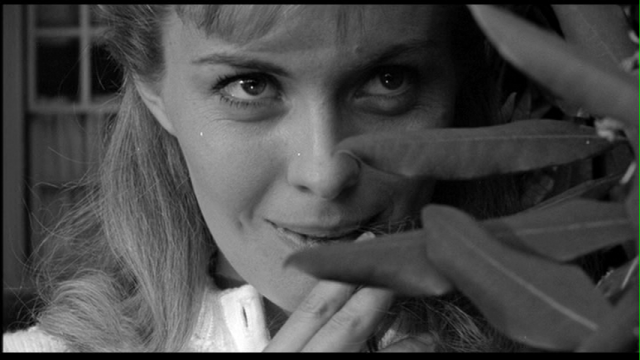
- Jessica Walter as Laura
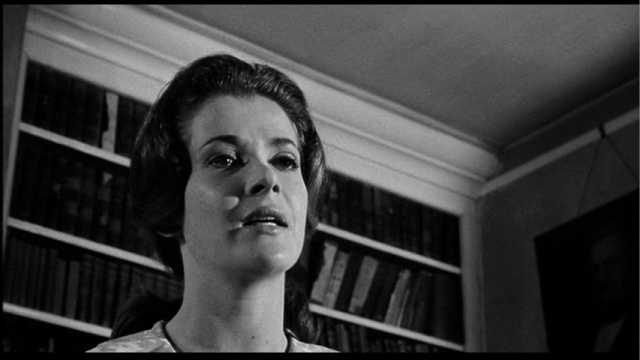
- Gene Hackman as Norman
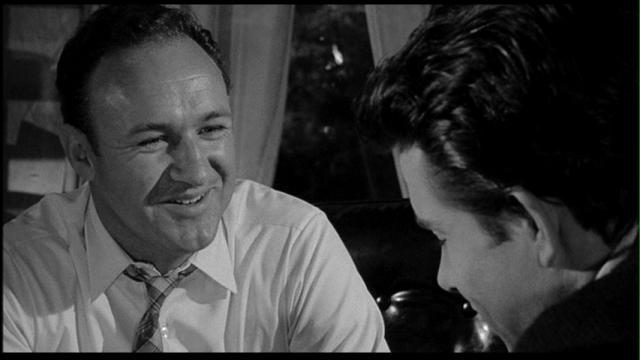
- Eugen Schufftan’s gorgeous b&w cinematography
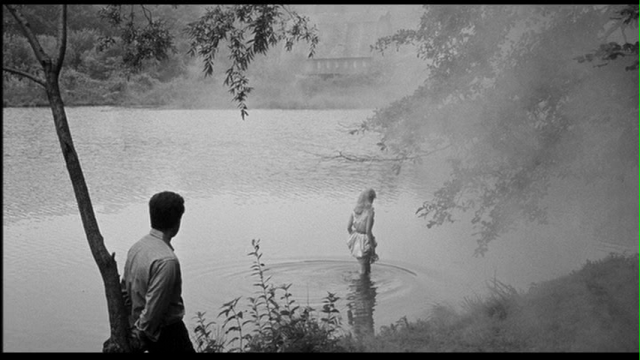
Must See?
No. Listed as a film with Historical Importance and a Cult Movie in the back of Peary’s book, but I’m not sure it has much of a following anymore, and am unclear about why it would hold historical relevance.
Links:
|
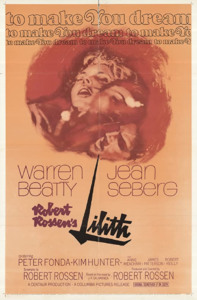




2 thoughts on “Lilith (1964)”
A ponderous, self-indulgent misfire. Though the dissolves are nice.
Beatty is on-hand to attempt to save Seberg from her sexual tendencies toward anything forbidden, i.e., lesbianism and pre-pubescent boys. Yawn.
Oddly, 3/4-through, we get a couple of interesting cameo performances by Jessica Walter and Gene Hackman. Small comfort.
Solid film, well made and played but like most films dealing with mental illness from the era (see also earlier examples like The Snake Pit and Spellbound) it comes over as cheesy.